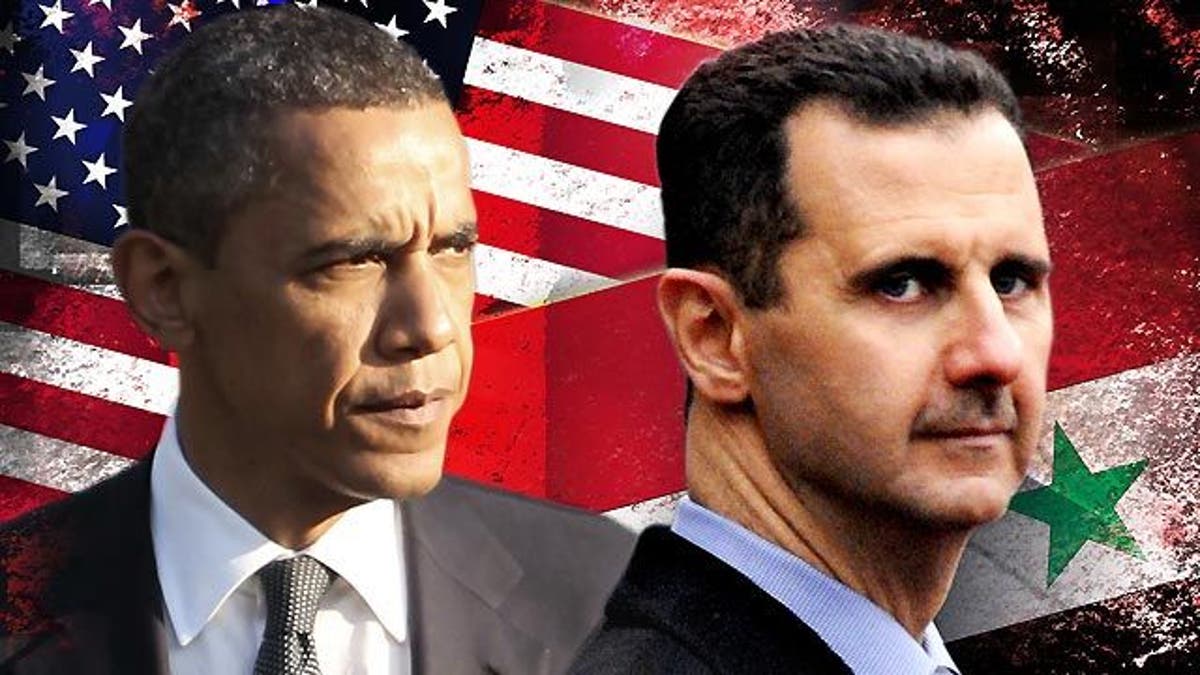
American credibility is at stake in Syria, but not necessarily in the way that President Obama thinks.
By now, we’ve all heard the arguments for intervention:
- Chemical weapons are banned by international treaty (interestingly enough, a treaty that Syria did not sign),
- If we fail to act, the brutal Assad regime will use chemical weapons again
- Degrading and defeating Assad will be a serious blow to Iran and Hezbollah.
Moreover, the president himself declared in 2012 that the use of chemical weapons was a “red line” – even though he recently tried to re-write history by claiming the “red line” was drawn by the world community, not him.
The president has said that if we don’t act, our enemies will think America is weak.
But that’s only half the story.
When considering whether America should “degrade” the Assad regime, it’s worth considering who benefits. It’s increasingly clear that if Assad loses, Al Qaeda wins.
[pullquote]
Here’s how the New York Times described the Syrian opposition, in April:
Across Syria, rebel-held areas are dotted with Islamic courts staffed by lawyers and clerics, and by fighting brigades led by extremists. Even the Supreme Military Council, the umbrella rebel organization whose formation the West had hoped would sideline radical groups, is stocked with commanders who want to infuse Islamic law into a future Syrian government.
Nowhere in rebel-controlled Syria is there a secular fighting force to speak of.
Since April, the situation has only grown worse. Reports have surfaced of unspeakable rebel atrocities, including murdering a Catholic priest, attacking Christian villages, and literally eating the hearts of enemies (and brazenly recording the act for the Internet). And now we learn that Al Qaeda is behind these horrific attacks against Christians in Syria.
In fact, even as the U.N. investigates Assad regime atrocities, it’s also investigating the rebels.
Even as Secretary of State John Kerry claimed that moderate forces were gaining strength in the rebel army, independent experts disagreed:
Secretary of State John Kerry's public assertions that moderate Syrian opposition groups are growing in influence appear to be at odds with estimates by U.S. and European intelligence sources and nongovernmental experts, who say Islamic extremists remain by far the fiercest and best-organized rebel elements.
With “no secular fighting force to speak of,” and with extremists the “by far the fiercest and best-organized rebel elements,” any American effort to “degrade” Assad runs the risk of empowering Al Qaeda.
From both a legal and strategic point of view, this is intolerable. As a matter of domestic and international law, the United States is in a state of armed conflict with Al Qaeda.
On the other hand, while we have ratified the Chemical Weapons Convention, which bans the production, stockpiling and use of chemical weapons, Syria has not.
We are under no international legal obligation to commence military hostilities against Syria.
Strategically, the only thing that could impair American credibility more than an empty threat is taking action that actually benefits our declared enemy: Al Qaeda.
While the Assad regime has had chemical weapons for many years, it has never used those weapons against Israel, the United States, or any of our other allies.
But if a weakened Assad regime is overrun by the “fiercest and best-organized rebel elements” does anyone doubt that Al Qaeda would use chemical weapons against us at its first opportunity?
The Syrian crisis represents the utter demise of the Obama Middle East policy – a foreign policy that is not in the best interest of America.
In thinking that he could engage our enemies, the president only empowered them.
As he dithered on helping our few allies in Syria, Al Qaeda rushed in to fill the vacuum.
And now we face the terrifying possibility that American action could – unintentionally, to be sure – end up helping jihadists seize control not just of a strategically vital nation but also its deadly stockpiles of WMDs.
As Congress debates action in Syria, it must not authorize any action that would enhance Al Qaeda’s strategic position in the Middle East.
Supporters of military action must be able to articulate precisely how “degrading” Assad does not end up enabling the most vicious rebels. And that is something President Obama must address when he takes his case before the American people on Tuesday night.
After all, as intolerable as the Assad regime is, Al Qaeda is worse – and Al Qaeda has attacked the United States. The Assad regime has not.
There’s an old saying, “the enemy of my enemy is my friend,” and there’s no doubt Assad is an enemy of the U.S. and Israel. Yet when it comes to Al Qaeda, the enemy of our enemy is still our enemy, an even greater enemy than Assad.
